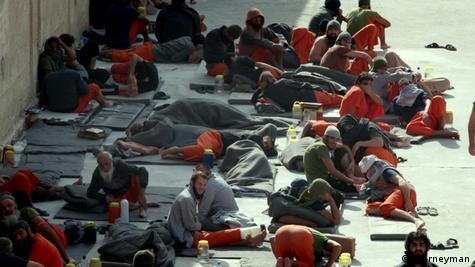
Syria’s Ticking Time Bomb – The Kurds, Turkey and ISIS
In northern Syria, many former IS fighters are imprisoned in hard-to-secure prisons. Among their children, the next generation of jihadists is growing up.
A severe earthquake in February 2023 brought northern Syria back into the international spotlight. It’s a region that has long gone unnoticed, despite the fact that the so-called Islamic State (IS), a terrorist organization, had its stronghold here. Though it was defeated militarily, IS could regain strength from here. This would have international repercussions.
Filmmaker Kawa Akrawi visited northeastern Syria’s autonomous, democratically governed area in 2022. In this region inhabited predominantly by Kurds, the filmmaker experienced the difficulties faced by the local population up close. Here in “Rojava,” as the region is known by the Kurds, the Kurdish militia YPG, backed by U.S. forces, fought against IS until 2019; thousands of fighters have been killed or wounded.
Following victory over the IS caliphate, the region has been home to the world’s largest prison for IS fighters.
The area also has the world’s largest camps for the jihadists’ women and children. Many of the wives are from western countries, which have refused to take them back.
In these immense camps and prisons, it is feared, the next generation of jihadists is now growing up. “We have defeated IS territorially, but its ideology and organization have not disappeared. They are still active,” says Newroz Ehmed, of the military alliance’s SDF General Command. Their security forces can guard the camps and prisons from the outside, but they cannot control them inside. It is an explosive situation.
The problem is further exacerbated by the fact that Turkish President Erdogan has been fighting the Kurds in northeastern Syria for years. He calls their militia, the YPG, a terrorist organization and repeatedly flies drone attacks on the “Rojava” region; tens of thousands of Kurds have lost their homes and now live in refugee camps.
Under these conditions, how can Kurdish leaders in northeastern Syria protect themselves, neighboring countries and the West from a return of IS? What are the plans for dealing with Islamist fighters and their children, who are being raised in camps to become fanatical and ruthless fighters?
Source » dw.com





